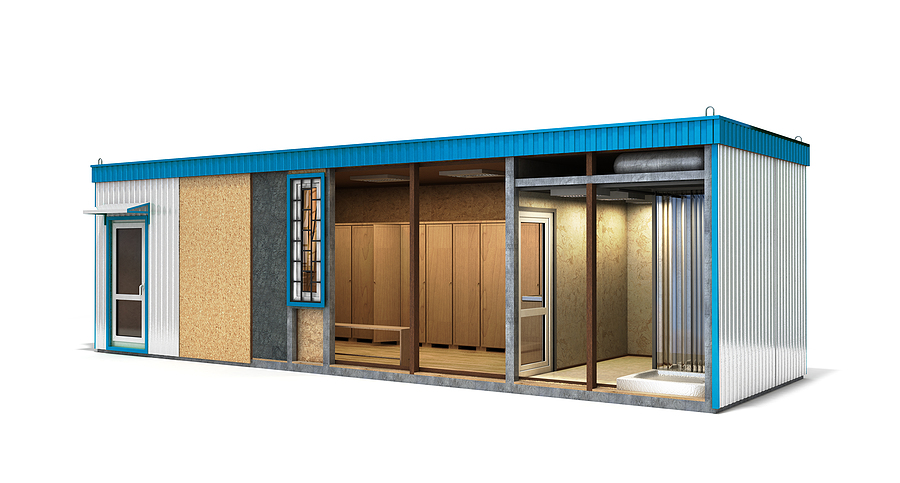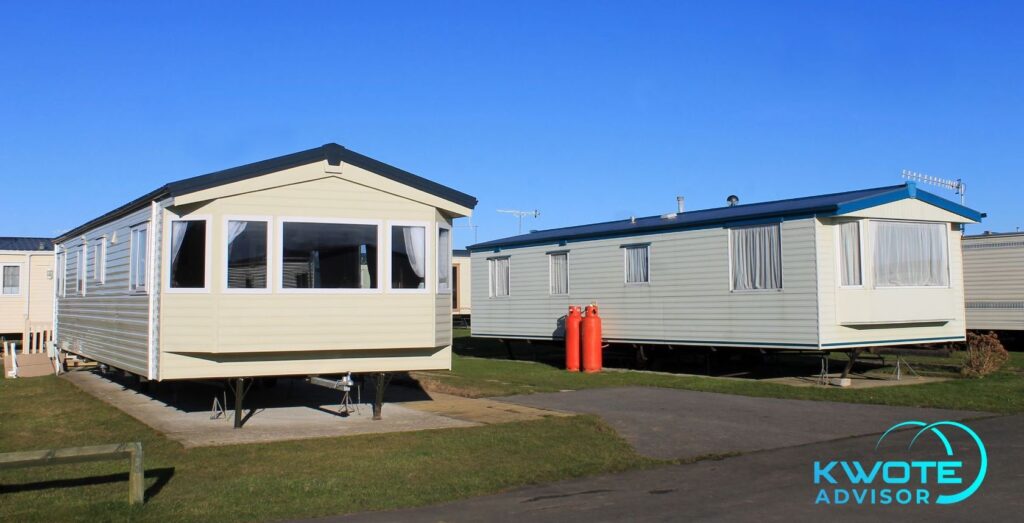
Top Benefits of Mobile Offices in Construction Projects
In the dynamic world of construction, efficiency and flexibility are paramount. This is where mobile offices come into play, offering a multitude of benefits to streamline construction projects. As a third-party company like Kwote Advisor, which specializes in connecting businesses with mobile office suppliers, it’s essential to understand these advantages. This guide delves into the key benefits of utilizing mobile offices in construction projects.
Enhanced Flexibility and Mobility
One of the primary advantages of mobile offices is their inherent flexibility. Unlike traditional office setups, mobile offices can be easily relocated to meet the evolving needs of a construction project. This mobility is crucial for large-scale construction projects that span across different locations. With mobile offices, project managers and teams can maintain a consistent workspace, regardless of the geographical changes in their projects.
Cost-Effectiveness
Cost management is a significant concern in construction projects, and mobile offices offer an economically viable solution. The expenses associated with constructing and maintaining a permanent on-site office can be prohibitive. Mobile offices, on the other hand, provide a cost-effective alternative. They eliminate the need for extensive infrastructure investments and reduce long-term maintenance costs, allowing for better allocation of financial resources towards other critical aspects of the construction project.
Time-Saving and Efficiency
In construction, time is a critical factor. Mobile offices can be quickly set up and made operational, saving valuable time that would otherwise be spent on constructing a traditional office space. This expediency ensures that project managers and teams can focus on the construction work without delays. Moreover, having an on-site office reduces the time spent traveling to and from off-site offices, thus enhancing overall project efficiency.
Improved Communication and Coordination
Effective communication and coordination are vital in construction. Mobile offices facilitate better on-site communication between different teams. By having a central hub on the construction site, decision-makers can more effectively oversee operations, address issues promptly, and coordinate tasks. This immediate access to information and personnel greatly improves project management and decision-making processes.
Customizable and Scalable Solutions
Mobile offices offer the advantage of customization. Depending on the specific needs of a construction project, these offices can be tailored to include various features such as conference rooms, private offices, rest areas, and storage spaces. Furthermore, they are scalable; as the project grows or changes, additional units can be added or removed to suit the project’s evolving requirements.

Enhanced Project Oversight
Having a mobile office on a construction site allows for better project oversight. Project managers can monitor the daily progress more effectively and make adjustments as needed. This constant presence on-site leads to a higher level of control over the project, potentially leading to higher quality outcomes and adherence to timelines.
Safety and Compliance
Safety is a top priority in construction. Mobile offices provide a secure and controlled environment for storing important documents, plans, and equipment. They also serve as a central location for conducting safety briefings and meetings, ensuring that all team members are aware of safety protocols and compliance requirements.
Environmental Considerations
In today’s eco-conscious world, mobile offices also offer environmental benefits. Many modern mobile offices are designed with sustainability in mind, using eco-friendly materials and energy-efficient designs. This aspect is particularly appealing to construction projects aiming to minimize their environmental footprint.
Mobile offices represent a versatile, cost-effective, and efficient solution for construction projects. Their ability to enhance flexibility, communication, oversight, and safety, while also being mindful of environmental impacts, makes them an indispensable tool in the construction industry. For businesses seeking to optimize their construction projects, partnering with a knowledgeable third-party company like Kwote Advisor to connect with the right mobile office suppliers is a strategic move towards success.
Detailed Cost Analysis: Buying, Leasing, and Renting Mobile Offices
Understanding the financial implications of acquiring a mobile office is crucial for construction businesses. The decision to buy, lease, or rent a mobile office depends on various factors, including the project’s duration, budget, and specific needs. Here we break down these options to provide a clearer picture.
Buying Mobile Offices
- Initial Investment: Buying a mobile office requires an upfront investment. The cost varies widely based on the size, features, and customization of the unit. Typically, prices can range from a few thousand dollars for basic models to tens of thousands for more sophisticated setups.
- Long-Term Value: Purchasing a mobile office is often more cost-effective in the long run, especially for companies that frequently engage in construction projects. Owning the unit eliminates ongoing rental fees and can provide a long-term solution.
- Depreciation and Resale Value: Like any asset, mobile offices depreciate over time. However, they can still retain significant resale value, especially if well-maintained. This aspect is worth considering for companies that might sell their unit in the future.
- Maintenance and Upkeep: Ownership comes with the responsibility of maintenance. Regular upkeep is necessary to ensure the mobile office remains functional and safe over its lifespan.

Leasing Mobile Offices
- Lower Upfront Costs: Leasing a mobile office is an attractive option for those who seek to avoid the high initial investment of buying. Leasing contracts usually require a lower upfront payment compared to purchasing.
- Flexibility: Leasing provides flexibility, particularly for short to medium-term projects. It allows businesses to use the office for a specific period without the commitment of ownership.
- Maintenance and Upgrades: Typically, the leasing company is responsible for maintenance and repairs, which can be a significant advantage. Furthermore, at the end of a lease term, companies can opt to lease newer models with the latest features.
- Higher Long-Term Cost: While leasing reduces upfront expenses, it can be more costly in the long run compared to buying, especially if the lease extends over a long period.
Renting Mobile Offices
- Ideal for Short-Term Projects: Renting is the most cost-effective option for short-term projects. It allows companies to have a mobile office for a specific duration, often ranging from a few days to several months.
- No Long-Term Commitments: Renting offers the highest degree of flexibility without any long-term financial commitment. This is particularly beneficial for one-off projects or infrequent construction activities.
- All-Inclusive Pricing: Rental agreements often include maintenance, which means companies don’t have to worry about additional upkeep costs. This can be a significant advantage for budgeting purposes.
- Availability and Convenience: Rental companies typically have a range of units available at short notice, making it a convenient option for immediate needs.
In summary, the decision to buy, lease, or rent a mobile office should be based on the specific requirements of the construction project and the financial strategy of the company. Buying is suitable for long-term and frequent use, leasing offers a balance of flexibility and cost, while renting is ideal for short-term and one-off projects. Businesses should carefully weigh these options in the context of their operational needs and financial capabilities. Partnering with a company like Kwote Advisor can provide valuable guidance and access to a range of options, helping businesses make the best choice for their unique circumstances.

